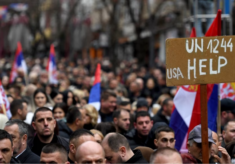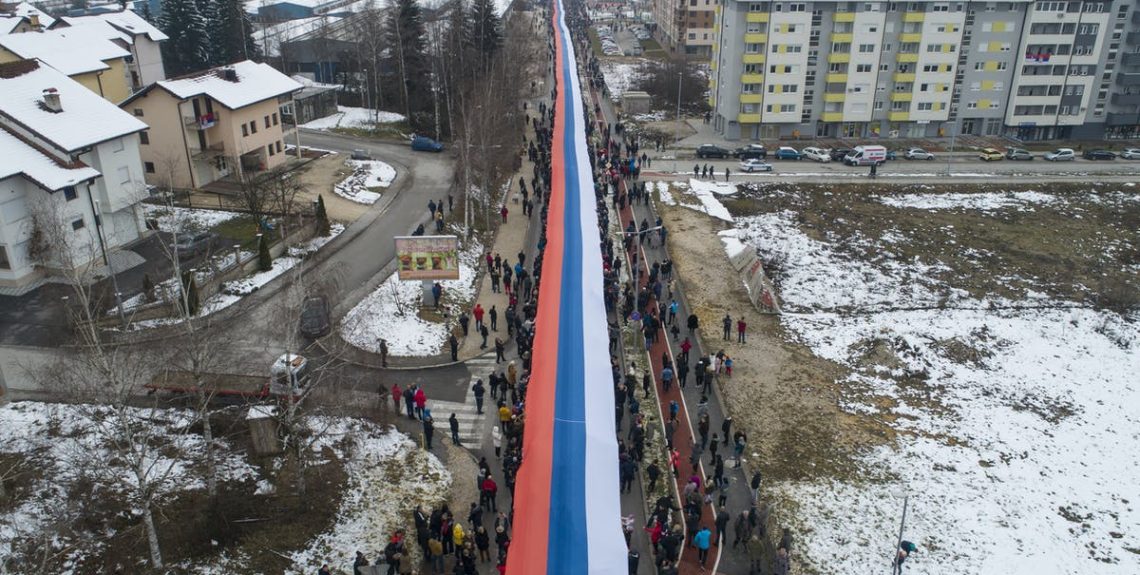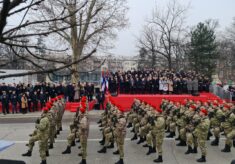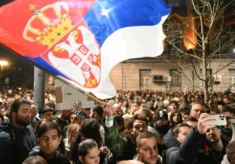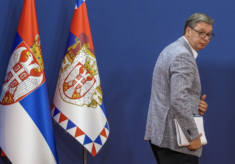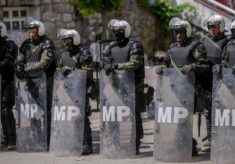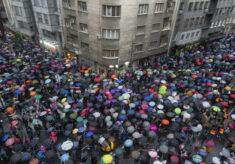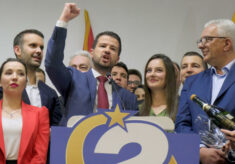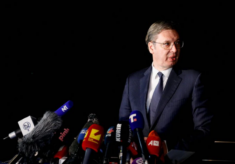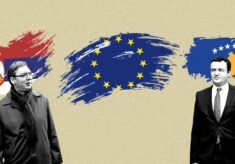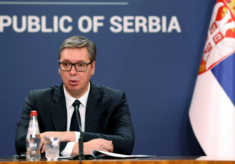In May, the long-running political crisis in Bosnia and Herzegovina, viewed as the most severe Bosnia and Hercegovina has faced since the 1990s, erupted once more, owing to provocations from the Bosnian Serb leadership as well as tensions and issues surrounding the forthcoming general elections. There are signs that the political stability of the country may further deteriorate. There are two main fronts open at this stage.
A leading source of concern remains the role of the Bosnian Serb member of the tripartite presidency, Milorad Dodik, who has been pushing a pseudo-secessionist policy for years. With the tacit support of Moscow, Dodik has threatened since last year to withdraw Bosnian Serbs from multi-ethnic central institutions, including the military forces. In May, Dodik accused the Bosniak political leadership of “Muslim nationalism” and of dominating both Serbs and Croats in Bosnia. Furthermore, he evoked the idea of the breakup of the Balkan country again. “The time has come to try once again to activate the mechanism of peaceful dissolution”, Dodik said.
In addition, the Bosnian Serb leader reaffirmed his allegiance to Moscow, which has long been a tacit supporter of his political program. He did so after the Russian embassy in Sarajevo, for the second time in two months, threatened Bosnia with consequences if the country joined NATO, a perspective vehemently opposed by Bosnian Serbs. “We won’t join NATO; that subject doesn’t exist,” Dodik said, adding that Moscow has the right to ‘warn’ Bosnia not to enter the alliance.
The second reason of concern is related to the upcoming general elections. The Central Election Commission (CEC) of Bosnia and Herzegovina has set October 2 as the date for general elections, despite the unsuccessful attempts at electoral reform. Croat nationalist parties in BiH have been lobbying for changes to the electoral legislation to increase their representation, even threatening to launch a process to form their own entity. Currently, Bosnia is divided into two semi-autonomous regions. One is controlled by Bosnian Serbs and the other by Bosniaks and Croats together. Joint central institutions bind the two, and all parties must back all significant decisions.
Bosnian Croats are increasingly claiming that they are discriminated against in the current system in the entity shared with Bosniaks. Croat leaders and neighbouring Croatia have asked that the voting system be altered so that only Bosnian Croats can directly elect their Croat members. Bosnian Croat lawmaker Dragan Covic cautioned in a letter that holding elections in such an environment poses a “danger to peace.”
The situation became tenser at the end of May, when Bosniak and Serb ministers in the Council of Ministers, the central government of this Balkan country, voted in favour of allocating funds for the October general elections. However, the measure was not adopted because all of the Croatian ministers were against it, in what was widely perceived as an attempt to undermine the organisation of the elections. This step could lead to further destabilisation of the country.
Blocking of election funding by “HDZ BiH,” the main Bosnian Croat party, strongly backed by Zagreb, which is lately increasingly active politically in Bosnia and Herzegovina, “disregards both democracy and their own expressed principles” and should urgently end, the US Embassy said on Twitter. “The citizens of Bosnia and Herzegovina must be enabled to enjoy their democratic right to free, fair and democratic elections,” the Office of the High Representative in Bosnia and Herzegovina said. The EU’s Delegation in Sarajevo also marked the failure to ensure the financing of elections as “deeply disappointing”, the regional television N1 reported.
In general, it appears that Bosnia and Herzegovina is going to face more tensions in the months to come, as the country is torn apart by the pseudo-secessionist tendencies of the Bosnian Serbs and the desire for greater autonomy of the Bosnian Croats. In addition to this, there is an expanding Russian influence channelled through Bosnian Serbs representatives, an additional factor to take into consideration.
